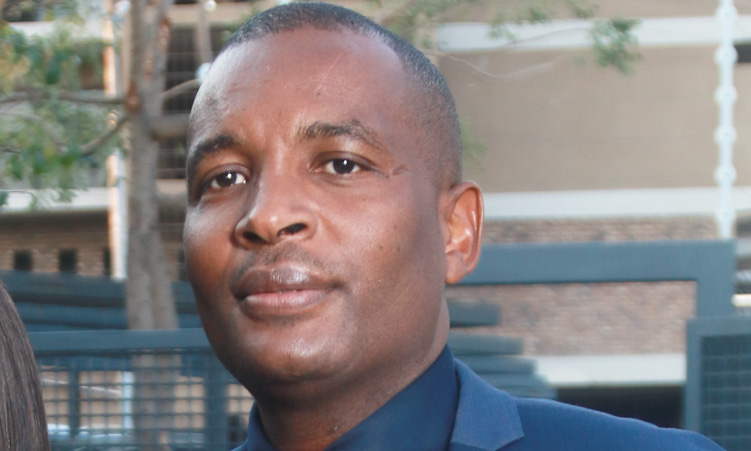After the worst weekend ever on global markets last week and much activity among the G7 and the European finance ministers over the weekend, the world started a fresh week with commitments from international leaders that not only will they do what it takes, but more importantly that they would all do whatever it takes – and do this together.
Up until last week, there were still those who believed that the situation would eventually stabilise itself and that some countries wouldn’t be affected, but what last week taught the world was that consolidated action was needed – and fast. I had mentioned reviously that Gordon Brown would try to persuade the world to follow the strategies of the British rescue plan as it addressed far more issues than the US bailout bill and that is roughly exactly what appears to be happening.Full details at this stage are still emerging, however the various deals roughly address the following: * Guarantees on interbank lending; * Guarantees on deposits and bank debts; * The provision of capital to the point of nationalisation where necessary.Both the G7 and the G20 packages lack detail, however most countries are expected to follow the financial rescue plan set by the UK.So why are markets still falling? Last week was the worst week ever for global equity markets.It is highly unlikely that you will see another week like last week again – hopefully – ever.However, the impact of the credit crunch on growth, jobs and earnings is by no means over and will be with us for several years to come.Hopefully stock markets have reached the point at which it is possible for stability to return and hopefully they can start rebuilding at least some of the losses investors have suffered.Markets, however, are still skittish and they will probably remain so for a while.Is there any good news at all? Yes, the oil price is roughly 50% of what it was at its peak, and that means lower fuel prices, food prices and ultimately inflation, which will allow central banks to focus more on growth stimulation than fighting inflation.In addition, there are visible signs that interbank lending is starting to loosen; a small pulse is starting to beat again.What should investors be doing? These are extraordinary times to say the least.Probably (and hopefully) more extraordinary times than investors will see again in their lifetime.During times such as these, there is an extremely high risk of ‘investment whiplash’, and investors need to be very wary of making extreme portfolio adjustments during current conditions, as the chance of selling/buying at the wrong time is significantly heightened.It is worth remembering that losses on a portfolio are paper losses until the moment investors sell and these losses are actually realised; with time, these losses will be erased.Similarly, if tempted to buy, there are significant opportunities out there – however investors should look to have at least a three-year investment horizon.There is a lot of money sitting on the sidelines trying to time the bottom to signal their buy-in.Similarly, there is a lot of money terrified of further losses and which simply cannot afford to lose more, hence the volatility.The bottom, when it comes, may be with us for a while – so there should be plenty of opportunity to phase funds into the market when it eventually stabilises.- Gardiner is a director at Investec Asset Management.All the views expressed about the markets, securities or companies in this comment accurately reflect the personal views of the individual fund manager (or team) named.I had mentioned reviously that Gordon Brown would try to persuade the world to follow the strategies of the British rescue plan as it addressed far more issues than the US bailout bill and that is roughly exactly what appears to be happening.Full details at this stage are still emerging, however the various deals roughly address the following: * Guarantees on interbank lending; * Guarantees on deposits and bank debts; * The provision of capital to the point of nationalisation where necessary.Both the G7 and the G20 packages lack detail, however most countries are expected to follow the financial rescue plan set by the UK. So why are markets still falling? Last week was the worst week ever for global equity markets.It is highly unlikely that you will see another week like last week again – hopefully – ever.However, the impact of the credit crunch on growth, jobs and earnings is by no means over and will be with us for several years to come.Hopefully stock markets have reached the point at which it is possible for stability to return and hopefully they can start rebuilding at least some of the losses investors have suffered.Markets, however, are still skittish and they will probably remain so for a while. Is there any good news at all? Yes, the oil price is roughly 50% of what it was at its peak, and that means lower fuel prices, food prices and ultimately inflation, which will allow central banks to focus more on growth stimulation than fighting inflation.In addition, there are visible signs that interbank lending is starting to loosen; a small pulse is starting to beat again. What should investors be doing? These are extraordinary times to say the least.Probably (and hopefully) more extraordinary times than investors will see again in their lifetime.During times such as these, there is an extremely high risk of ‘investment whiplash’, and investors need to be very wary of making extreme portfolio adjustments during current conditions, as the chance of selling/buying at the wrong time is significantly heightened.It is worth remembering that losses on a portfolio are paper losses until the moment investors sell and these losses are actually realised; with time, these losses will be erased. Similarly, if tempted to buy, there are significant opportunities out there – however investors should look to have at least a three-year investment horizon.There is a lot of money sitting on the sidelines trying to time the bottom to signal their buy-in.Similarly, there is a lot of money terrified of further losses and which simply cannot afford to lose more, hence the volatility.The bottom, when it comes, may be with us for a while – so there should be plenty of opportunity to phase funds into the market when it eventually stabilises.- Gardiner is a director at Investec Asset Management.All the views expressed about the markets, securities or companies in this comment accurately reflect the personal views of the individual fund manager (or team) named.
Stay informed with The Namibian – your source for credible journalism. Get in-depth reporting and opinions for
only N$85 a month. Invest in journalism, invest in democracy –
Subscribe Now!






